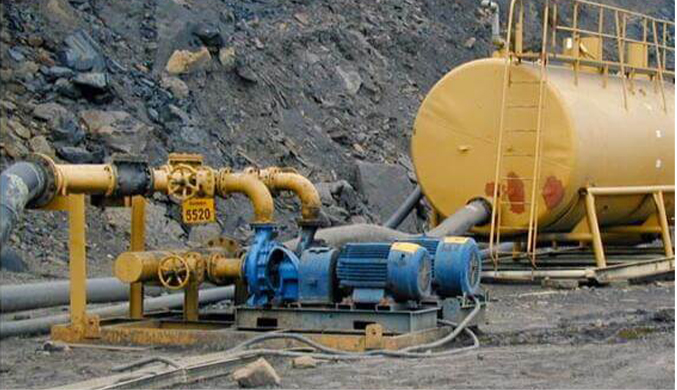Japanese
- Afrikaans
- Albanian
- Amharic
- Arabic
- Armenian
- Azerbaijani
- Basque
- Belarusian
- Bengali
- Bosnian
- Bulgarian
- Catalan
- Cebuano
- Corsican
- Croatian
- Czech
- Danish
- Dutch
- English
- Esperanto
- Estonian
- Finnish
- French
- Frisian
- Galician
- Georgian
- German
- Greek
- Gujarati
- Haitian Creole
- hausa
- hawaiian
- Hebrew
- Hindi
- Miao
- Hungarian
- Icelandic
- igbo
- Indonesian
- irish
- Italian
- Japanese
- Javanese
- Kannada
- kazakh
- Khmer
- Rwandese
- Korean
- Kurdish
- Kyrgyz
- Lao
- Latin
- Latvian
- Lithuanian
- Luxembourgish
- Macedonian
- Malgashi
- Malay
- Malayalam
- Maltese
- Maori
- Marathi
- Mongolian
- Myanmar
- Nepali
- Norwegian
- Norwegian
- Occitan
- Pashto
- Persian
- Polish
- Portuguese
- Punjabi
- Romanian
- Russian
- Samoan
- Scottish Gaelic
- Serbian
- Sesotho
- Shona
- Sindhi
- Sinhala
- Slovak
- Slovenian
- Somali
- Spanish
- Sundanese
- Swahili
- Swedish
- Tagalog
- Tajik
- Tamil
- Tatar
- Telugu
- Thai
- Turkish
- Turkmen
- Ukrainian
- Urdu
- Uighur
- Uzbek
- Vietnamese
- Welsh
- Bantu
- Yiddish
- Yoruba
- Zulu
Telephone: +86 13120555503
Email: frank@cypump.com
11月 . 29, 2024 12:55 Back to list
Understanding the Importance of Septic System Pumps for Homeowners
Understanding Septic System Pumps Essential Components for Efficient Wastewater Management
When it comes to managing household wastewater in rural and suburban areas, septic systems play a crucial role. These independent systems treat and dispose of sewage waste through a series of underground chambers, keeping the environment clean and safe. A vital component of many septic systems is the septic pump. Understanding its function, types, maintenance needs, and signs of failure is essential for homeowners relying on these systems.
What is a Septic Pump?
A septic pump is a mechanical device that moves wastewater from the home to the septic tank and, subsequently, to the drain field for treatment. In gravity-fed septic systems, the flow relies solely on the natural slope of the land. However, if the home is situated in a low-lying area or the drain field is at a higher elevation, a septic pump becomes necessary. Its primary purpose is to ensure that the wastewater is effectively transported, preventing backups and other plumbing issues.
Types of Septic Pumps
There are several types of septic pumps, each suitable for different scenarios
1. Effluent Pumps These pumps move wastewater that has already been treated in the septic tank. They are used primarily in systems that require effluent to be pumped to a drain field that is higher than the tank's location.
2. Sump Pumps Often used in conjunction with a septic system, sump pumps remove groundwater or rainwater that accumulates in basements or crawl spaces. They help prevent flooding, ensuring that excessive water does not compromise the septic system.
3. Grinder Pumps These heavy-duty pumps grind waste into a fine slurry before pumping it out. This type is typically used in systems where the sewage needs to be transported over long distances or to a higher elevation.
4. Centrifugal Pumps Suitable for various applications, these pumps utilize a rotating device to generate flow and pressure. They are often used in large-scale septic systems and municipal waste management.
Maintenance of Septic Pumps
Regular maintenance of septic pumps is crucial for optimal performance and longevity. Here are some maintenance tips
septic system pump

- Inspections Homeowners should regularly inspect their septic systems, including the pump, at least once a year
. Look for visible signs of malfunction, such as unusual noises or failures to activate.- Cleaning It’s essential to keep the pump and surrounding areas clean. Accumulation of debris or sludge can hinder performance and lead to malfunctions.
- Pump Replacement A septic pump typically has a lifespan of about 5 to 15 years, depending on usage and maintenance. Homeowners should be prepared for replacement and budget accordingly.
- Professional Help Hiring a licensed septic professional for annual inspections can help catch potential issues early and maintain the system's efficiency.
Signs of Septic Pump Failure
Recognizing signs of septic pump failure is crucial in preventing more extensive system damage. Common indicators include
- Slow Drains If sinks, toilets, or showers drain slowly, it may indicate that the pump is not functioning properly.
- Foul Odors Unpleasant smells emanating from the yard or near the septic system can point to a pumping issue or a backup.
- Water Pooling If there are puddles or wet areas around the septic field, it’s a clear sign that something is wrong, possibly due to improper pumping.
- Alarms Many modern septic systems are equipped with alarms that will sound when there is a problem with the pump. Ignoring this can lead to more significant water damage and health risks.
Conclusion
Septic system pumps are essential for the effective functioning of a septic system. They ensure that wastewater is adequately transported and treated, minimizing the risks associated with sewage accumulation. By understanding the types of septic pumps, their maintenance needs, and the signs of potential failure, homeowners can take proactive measures to safeguard their septic systems and the environment. Proper care and vigilance can lead to a more efficient and durable septic system, ultimately saving time, hassle, and money.
-
Heavy-Duty Mining Sludge Pumps - Wear-Resistant Slurry Handling
NewsAug.02,2025
-
Horizontal Split Case Pump with GPT-4 Turbo | High Efficiency
NewsAug.01,2025
-
ISG Series Pipeline Pump - Chi Yuan Pumps | High Efficiency, Durable Design
NewsAug.01,2025
-
Advanced Flue Gas Desulfurization Pump with GPT-4 Turbo | Durable & Efficient
NewsJul.31,2025
-
ISG Series Vertical Pipeline Pump - Chi Yuan Pumps | Advanced Hydraulic Design&Durable Construction
NewsJul.31,2025
-
ISG Series Vertical Pipeline Pump - Chi Yuan Pumps | Energy Efficient & Low Noise
NewsJul.31,2025










